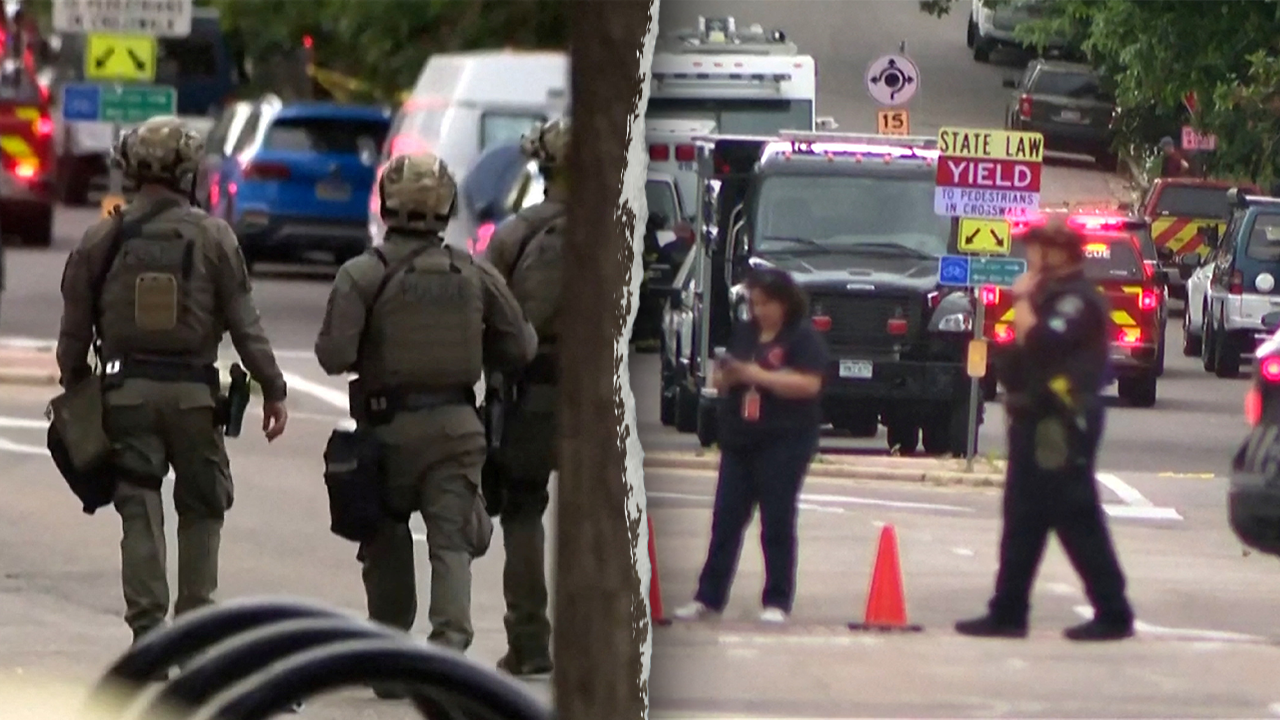Boston, MA
Chaim Bloom may be (relatively) new to Boston, but his family roots run deep – The Boston Globe

It all started with his great-grandmother Sadie Bloom and a runaway horse.
One fateful spring day in 1920, three months after the Red Sox sold Babe Ruth to the Yankees, Sadie, a mother of 13, was walking with two friends through Boston’s bustling West End when something spooked a horse pulling a peddler’s wagon. Children scattered as the animal charged through the narrow streets, its riderless wagon careening behind.
At 66 Poplar Street, where the Charles River Park residences now stand, the runaway horse “stumbled, but did not go down, and in trying to keep to his feet swerved upon the sidewalk, taking the wagon with him,” the Globe reported.
Sadie and her friends were struck “by the horse’s hoofs,” witnesses said. Severely injured, they were transported to Boston City Hospital’s relief station in Haymarket Square.
As destiny would have it, Sadie survived, and the Bloom family tree would grow to include her great-grandson, who nearly a century later would be appointed to the top baseball job in Boston.
It has not, thus far, been an easy ride. Bloom has been cast by some diehard Sox fans as an interloping budget-cutter who imperiled the franchise by letting cornerstones Mookie Betts and Xander Bogaerts get away. Critics have derided him as a modern-day Harry Frazee, the Sox owner who by selling the great Ruth to the Yankees was blamed for the mythical Curse of the Bambino — an 86-year championship famine.

Such is the circle of life for the Blooms of Boston. As the Sox try to defy forecasts that they will finish last in the American League East for the third time in Bloom’s four years in charge, he joked in an interview about the chances of his experiencing some kind of karmic mishap involving a runaway steed.
“Maybe I should stay away from the [horse] track,” Bloom said.
The Bloom family’s roots in Boston date to the early 1890s, before the Sox or Ruth even existed, according to a review of public documents, genealogical records, news archives, and interviews. The Globe, which informed Bloom about his great-grandmother’s startling misfortune with the runaway horse, explored his bloodlines as it previously did the ancestries of Boston sports figures such as Tom Brady and Bill Belichick.
Read more: There’s a world of surprises in Bill Belichick’s family history
Read more: Tom Brady’s roots run deep into 19th-century Boston
Arrival in America
Over time, Bloom’s forebears forged a path from the West End through three of Boston’s major public housing developments — Franklin Field, Orchard Park, and Franklin Hill — before his grandparents bought their first home in Milton, an easy walk from Mattapan Square, in the late 1950s.
His ancestors played stickball in the projects, rode the city transit lines, worked in the Globe’s pressroom, packaged candy in the Schrafft’s factory, ate Jordan Marsh blueberry muffins, found love, went to war, and returned home with haunting memories and a stronger sense of place.

They epitomized a multitude of European immigrants who settled in Boston in the late 19th and early 20th centuries: poor, foreign-speaking, law-abiding refugees who endured boundless challenges to better the lives of future generations.
Sadie, her husband Harry, and their first two children arrived in Boston from Liverpool on the steamship Michigan in 1891. Persecuted as Jews, they had fled Odessa, then part of the Russian Empire, now a Ukrainian seaport under threat from Russia.
Yiddish was their mother tongue, as it was for many in the West End, a richly diverse immigrant community. Harry worked as a tailor, while Sadie raised their family. They lived for decades in tenement apartments above a Chinese immigrant’s laundry shop at 126 Brighton Street — one of many century-old thoroughfares that disappeared when most of the West End was demolished in the late 1950s in the name of urban renewal.

Harriet Bloom, one of Sadie and Harry’s grandchildren, lived in the Brighton Street tenement and befriended Leonard Nimoy, himself the child of Yiddish-speaking refugees. Nimoy lived on nearby Chambers Street and later gained fame playing Spock in “Star Trek.”
As teens, Harriet and Nimoy socialized at a deli on North Russell Street and performed in youth stage productions at the West End’s Elizabeth Peabody House.
Nimoy became a Red Sox fan, as did Chaim Bloom’s father, Ben, who was born in 1946, the year the Sox lost the seventh game of the World Series in agonizing fashion — the first of many season-ending calamities during the title drought.

Ben Bloom said in an interview that he has fond memories of the Red Sox, among them watching a television broadcast of the 1955 team defeating Detroit, 4-3, thanks to a ninth-inning grand slam by Ted Williams. He remembers marveling at Carl Yastrzemski’s Impossible Dream season in 1967 and Luis Tiant’s masterful pitching in the 1975 postseason.
Ben Bloom, however, also recalls the misery of the championship famine, foremost for him the heart-wrenching climaxes of the ‘67 and ‘75 World Series.
“When you grew up a Red Sox fan, you grew up learning how to be disappointed in all those years of never winning,” he said, with a trace of a Boston accent. “That’s the way it always was.”
Wartime movements
The legacy of despair is not lost on Ben’s son.
“You don’t have to have family roots here to understand what baseball means in Boston,” Chaim Bloom said. “But knowing that my dad and so many other family members have lived here and have lived and died by the fortunes of the Red Sox just adds more meaning to what we’re doing, which already means a heck of a lot.”
Ben’s father, Isadore Bloom, one of Sadie and Harry’s youngest children, enlisted in the Army in 1942, four months after Williams left the Sox for the Navy in World War II.
Isadore, who went by Irving or Izzy, deployed to Europe in 1945 with the 86th Infantry, known as the Black Hawks. Historians say the 86th captured more than 53,000 German soldiers, liberated more than 200,000 Allied prisoners of war, and freed nearly 1,000 forced laborers at a Nazi camp in the German town of Attendorn.
Because Yiddish is similar to the German language, Isadore served at times as a translator for German prisoners of war.

When the war in Europe ended, the 86th briefly returned home. It was then that Isadore and his wife, Gertrude, a Lithuanian immigrant who grew up on Wales Street in Dorchester, conceived Ben. He said they did so in part because a perilous mission appeared to loom: Members of the 86th expected their next assignment to be a ground invasion of Japan; they considered their chances of survival slim.
“My father wanted to leave something behind,” Ben said. “So, here I am.”
When the invasion became unnecessary after the US dropped atomic bombs on the Japanese cities of Hiroshima and Nagasaki, the 86th was ordered to the Philippines to root out remaining Japanese forces, a mission in which Isadore waged combat with an Army knife that he later gave his son, along with his bayonet.
“My father didn’t talk much about the war,” Ben said. “He told me that anyone who was in the middle of that stuff didn’t want to remember it.”
After the war, Isadore and Gertrude, Chaim Bloom’s grandparents, moved with their infant son Ben into military-style barracks erected for veterans on Franklin Field. The Blooms lived there until the barracks, drafty and cold in the winter, were torn down in 1950.
Over the next year, they lived in city housing at Bataan Court in the Orchard Park projects in Roxbury, before they returned to Dorchester and settled in a new public development on Franklin Hill, across Blue Hill Avenue from Franklin Field, now Harambee Park.
Rich cultural experience
Blue Hill Avenue at the time was the backbone of Boston’s burgeoning Jewish community. Isadore, a skilled compositor and typesetter, opened a printing shop downtown, while Gertrude worked nearby in the corsetry section of Jordan Marsh’s bargain basement. Gert, as she was known, was particularly popular with Italian-speaking customers because she had learned their language at a grocery shop her father operated in the North End.
Isadore’s brother David Bloom, meanwhile, worked for a while as a typesetter and proofreader for the Globe.
As for Ben, he often immersed himself as a child in the science section of the city library in Codman Square. A self-described nerd, Ben attended the Paine Elementary School in Dorchester and Lewenberg Middle School in Mattapan before the family resettled on Ferncroft Road in Milton in 1958. They arrived with a new General Electric refrigerator, thanks to Gertrude’s winning entry in a Dorchester grocery store contest, as noted in a Globe advertisement.

At Milton High School, Ben joined the chemistry, math, and amateur radio clubs. He then became a co-op student at Northeastern University, where he studied engineering and conducted NASA-funded research, leading to a postgraduate job at a NASA lab in Cambridge.
Chaim Bloom’s father helped NASA build an instrument that enabled astronauts to measure blood oxygen levels through their eyes. He later enrolled in Tufts Medical School and became an ophthalmologist, which took him to Philadelphia, where he opened a practice in 1980 and started a family with his wife Esther.

Ben described his life in Boston as rich in recreational, educational, and cultural experiences. He bicycled to the Arnold Arboretum, sailed on the Charles, viewed Rembrandts at the Isabella Stewart Gardner Museum, explored every nook of the Museum of Science, and attended free rehearsals at Jordan Hall and Symphony Hall, including an appearance by Leonard Bernstein, the legendary conductor and composer.
“My life probably would have been a lot different if not for Boston,” Ben Bloom said.
An office at Fenway Park
Chaim Bloom was born three years after Ben opened his practice in Philadelphia. Ben said Esther, fearful that her son would become a nerd like his father, placed a baseball book on Chaim’s nightstand as a boy. Chaim’s uncle, Robert Bloom, a professor at Boston College Law School, later gave him an American Professional Baseball Association (APBA) game that favors the best statistical analysts and strategists. The kid was hooked.

At Yale University, where Chaim majored in Latin Classics, he interned for the statistical analytics publication Baseball Prospectus and graduated in 2004, not long before the Sox won their first World Series in 86 years.
Ivy League degree in hand, Chaim began his climb up baseball’s front office ladder, starting with an internship at Major League Baseball headquarters. He made his name in baseball by helping to build the low-budget Tampa Bay Rays into perennial contenders, before the Sox hired him in 2019.
Again, Ben marveled.
“When I found out my son had met and worked a bit with Carl Yastrzemski, I was speechless,” he said. “Then my son took a picture of the legendary Luis Tiant teaching my grandson how to throw a changeup. Imagine that!”
However, criticism of Chaim Bloom has not gone unnoticed by his father.
“Nowadays, Red Sox fans are a whole lot more demanding,” Ben Bloom said. “They’ve got some championships, and they want it to be that way every year.”
Yet deep in the DNA of Chaim Bloom’s Boston bloodlines seems to be a strand of eternal optimism, as he illustrated in January when he told a crowd of hecklers at a fan forum that the best is yet to come for the Sox, that “it’s going to be awesome.”
Resilience also may be a family trait. More than a century after Sadie Bloom was trampled and got back up again, Ben Bloom said, “It’s easy for Chaim to remember his blood type because it’s the same as his personal motto: B(e) positive.”
Bob Hohler can be reached at robert.hohler@globe.com.

Boston, MA
Opening statements expected in trial of Irish firefighter charged with raping woman at Boston hotel – The Boston Globe

Superior Court Judge Sarah W. Ellis is presiding.
Seven jurors were chosen on Friday, and on Monday, several more were seated for a total of 15. Opening statements are set to follow later Monday, officials said.
Crosbie is accused of raping a woman while she slept in March 2024, when he was in Boston to participate in St. Patrick’s Day parade with fellow members of the Dublin Fire Brigade.
Crosbie was originally scheduled to leave the United States after the parade on March 19, officials have said. But after Crosbie spoke with police on March 15, he went to Logan International Airport for a 10:10 p.m. flight bound for Ireland, officials said.
He boarded an earlier flight at 7 p.m., but was pulled off the airplane by State Police and arrested, officials said.
Prosecutors allege that Crosbie raped a “female stranger” at the Omni Parker House hotel in downtown Boston on March 14, 2024.
The woman, 28, had gone to dinner with coworkers at The Black Rose, a pub near Faneuil Hall, and met a man, Liam O’Brien, along with his fellow Irish firefighters, according to prosecutors and court records.
The woman told police on March 15 that she agreed to return to O’Brien’s room, which he was sharing with Crosbie, at the Omni Parker House.
Video shows that around 11:30 p.m., the woman left a restaurant with O’Brien and returned to the room, prosecutors said.
The pair had a consensual encounter in the room, according to prosecutors. O’Brien then fell asleep on one of two beds in the hotel room, and the woman went to sleep on the other bed, prosecutors said.
Crosbie left the hotel at 11:55 p.m., according to hotel security video, and swiped his key card back into the room at 1:55 a.m., prosecutors said. At some point in the night, the woman woke up as Crosbie was allegedly raping her, according to a police report.
The woman “tried to push the male off” and she said “What are you doing? Stop!” the report said. Crosbie said “this guy is sleeping, I know you want this. He fell asleep,” the woman told police.
The woman left at 2:15 a.m., 20 minutes after Crosbie entered the room, prosecutors said. She messaged a friend to say she had been assaulted and went to a hospital, where she spoke with police.
At a hearing in August, prosecutors requested a DNA swab from Crosbie for “comparative testing” A genital swab from the woman revealed male DNA, prosecutors said in court documents.
“In this case, a known DNA sample from the defendant will produce evidence relevant to the question of his guilt,” Assistant District Attorney Erin Murphy, chief of the domestic violence and sexual assault unit, wrote in court papers.
Crosbie objected to providing a sample on grounds of unreasonable searches and seizures, court filings show.
“My client is not concerned about what the DNA is going to return or say,” Reilly said at the time. “He is adamant that he had no physical contact with her.”
The status of the DNA testing wasn’t immediately clear on Monday.
Material from previous Globe articles was used in this report.
Ava Berger can be reached at ava.berger@globe.com. Follow her @Ava_Berger_.
Boston, MA
Matt Stuart gem lifts Chelmsford past Wellesley in 1-0 thriller

WELLESLEY — In the very back of Chelmsford ace Matt Stuart’s mind is that each of the program’s last three state tournament runs have ended in games he started.
Yet another gem from the senior Gardner-Webb University-commit on Sunday instead has the Lions reaching a new height.
With a complete-game shutout, in which the four-year starter allowed just three hits and two walks with eight strikeouts, Stuart won a true pitchers duel to lift 14th-seeded Chelmsford (17-8) over No. 11 Wellesley, 1-0, in the Div. 1 state quarterfinals to secure the program’s first trip to the Final Four.
Evan Kobrenski’s RBI double in the fifth inning proved the game-winner, getting just enough against Raiders sophomore Max Boehm (complete game, one run, four hits, four strikeouts) in a 74-pitch gem.
“It’s amazing, it’s what we’ve been working for all year,” Stuart said. “Every year so far, we’ve been knocked out when I’ve been pitching. I was 0-for-3 coming into this (tournament). So that first game (in the first round) was a big step for me, and to win this one is just amazing.”
“We’re crazy excited,” added Chelmsford head coach Lou DiStasi. “This team has been building for several years. We challenged ourselves with a really tough schedule because we knew that we wanted to compete for the state title. … To get this, into the Final Four, I think it means so much to the town and to the community.”
Batters had trouble all game producing much of any real opportunities against either pitcher, both of whom each set down seven straight batters at one point. And when chances with runners in scoring position came up, the two combined to force a 1-for-7 mark at the plate.
Boehm efficiently forced a slew of routine plays for his defense by pounding the strike zone, while Stuart’s mix of pitches did the same and produced at least one strikeout in every inning but the third.

“I knew coming in he was a good pitcher,” Stuart said. “But I knew if we got one, I knew I wasn’t going to let up a run. So just get that run, and it was over.”
It wasn’t until the fifth inning that a run was scored, in which Boehm nearly got out of the jam prior. John Latham’s leadoff double was advanced to third on a Keegan Briere (2-for-2) sacrifice bunt. Boehm answered by taking away a squeeze opportunity with a lineout.
On the next pitch, Kobrenski tucked a grounder just inside the first-base line for a two-out double and the 1-0 lead.
“That’s been our team all year,” DiStasi said. “(Kobrenski) has been unbelievable for two consecutive years. … To get that double for us to win, couldn’t have gone to a better kid.”
That’s the only damage Boehm allowed, but Stuart held up his promise.

Will Goggin (2-for-2) and Cole DeFina hit two-out singles to put runners on first and third in the fifth, only for Stuart to force a lineout to shortstop to end the threat. Only one runner reached in the sixth and seventh innings, and it came on a dropped routine fly in the outfield.
Stuart, whopitched well in those three previous state tournament losses, closed the door in the program’s biggest win to date.
“It was like he always does,” said DiStasi. “He pitches every single one of the big games that we ever get. … It’s the way he’s been his entire career. We expect him to do something like that, even though every time he does it, you just smile and say, ‘Wow, you’re an amazement.’ He’s the biggest competitor I’ve ever coached.”
There’s quite a history with this Chelmsford group, as many of the players were on the Cal Ripken 11-year-old team for DiStasi back in 2019, which qualified for the 2020 World Series as 12-year-old representatives.
COVID cancelled it, and they never had the chance for that glory.
“Our 12-year-old team that was destined to go to the World Series … never had the chance to do it,” DiStasi said. “This might be a nice little alternative, so we’ll take it.”

Originally Published:
Boston, MA
Alex Cora gives Boston Red Sox injury updates on Tanner Houck, others

NEW YORK — Injured Red Sox starter Tanner Houck still has not thrown off a mound more than three weeks after landing on the IL.
The 28-year-old righty was placed on the 15-day injured list May 14 with a right flexor pronator strain.
“Playing catch but not on the mound yet,” manager Alex Cora said Saturday before Boston’s game against the Yankees at Yankee Stadium.
Houck has struggled this season with an 8.04 ERA (43 ⅔ innings, 39 earned runs) in nine starts.
Is his progression going slower than initially expected?
“Not really,” Cora said. “When you go on the IL, you never know.
“I’m not saying this is the case but when they (trainers) start working on you, they feel like it’s more time than in the beginning or less time,” Cora said. “So I leave it up to them to see where we’re at but we just gotta be patient.”
Other Red Sox injury updates:
~ Setup man Justin Slaten, who the Red Sox placed on the 15-day injured list June 1 with right shoulder inflammation, has not begun throwing again.
~ Third baseman Alex Bregman (right quad strain) “feels good” after beginning his running progression Thursday, Cora said. “The progression is going well. Let’s see how he feels tomorrow and then we’ll go from there. Obviously we’re still far away from starting the baseball progression,” Cora said.
~ Starter Kutter Crawford (wrist pain) was supposed to throw a bullpen session this weekend. But Cora said it’s now going “to be the end of the (this coming) week.”
-

 Politics1 week ago
Politics1 week agoMichelle Obama facing backlash over claim about women's reproductive health
-

 Technology1 week ago
Technology1 week agoOpenAI wants ChatGPT to be a ‘super assistant’ for every part of your life
-

 Movie Reviews1 week ago
Movie Reviews1 week agoThe Verdict Movie Review: When manipulation meets its match
-

 West3 days ago
West3 days agoBattle over Space Command HQ location heats up as lawmakers press new Air Force secretary
-

 Finance1 week ago
Finance1 week agoHere's what will boost your feeling of financial well-being the most, researchers say
-

 Technology1 week ago
Technology1 week agoWhy do SpaceX rockets keep exploding?
-

 World1 week ago
World1 week agoTwo killed in Russian attacks on Ukraine before possible talks in Turkiye
-

 News1 week ago
News1 week agoDepartment of Homeland Security lists sanctuary jurisdictions in Northern California














